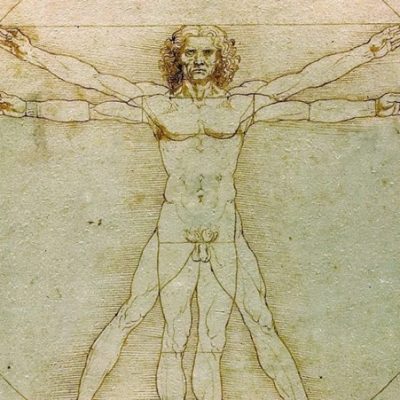Consistency is that elusive force that all athletes are trying to attain. It’s the Holy Grail, the Promised Land, Mecca!
The big question, and ongoing challenge, is how to master it? How to consistently be consistent? How to show up time and again being your best self no matter the external forces pulling at you?
I would bet most athletes would trade in the handful of their best-ever performances to have attained more consistency throughout their lives.
By operating at a closer bandwidth that does not have the extreme highs or lows. The peaks and troughs. Riding the rollercoaster of overwhelming joy, and debilitating lows.
This does little for gaining and building confidence when in one match you are in flow and everything is effortless and you are executing to perfection.
To be quickly followed by a very different self and one that is nowhere near what you were a matter of days or even hours ago.
Whereas consistency in performance is arguably the biggest asset when it comes to building confidence and self-belief.
The image below may help to visually explain my point.

Over time, with extremes highs and lows, confidence levels drop. But on the other hand, when the highs are not as high but the lows are not as low, then confidence levels rise.
I will explore ways and present you tools on how best to attempt to find that consistent performance time and time again and ultimately to build a lot of confidence along the way.
But before we dive in, I often like to compare happiness and consistency.
Stay with me for a second…
There are many, many self-help books, guidance, gurus, inspirational quotes, YouTube videos, Twitter handles, etc that try and show us how to be happy.
Nothing wrong with these of course.
But the kicker is, the more you try and BE HAPPY the more this state can allude you. You have your ladder up against the wrong wall if all you are doing is chasing after happiness.
Chasing too hard and too aggressively after that flittering butterfly of happiness. The more you force it the more the butterfly dodges your grasping hands.
Happiness tends to be found in each and every moment, being purposeful and intentional with your life, doing things for a greater cause, and feeling valued with your work.
I’ll stop there as this is not a lecture on happiness. That’s for another time…
I think consistency is exactly the same. Trying your hardest to achieve it, by gritting your teeth and WILLING yourself to be consistent can be the exact thing that takes you further away from consistency. Pretty annoying right?
But there are better and more productive ways to find consistency.
Here they are…
Practice like you play
The first and hopefully most obvious tool I can give you would be to practice as you mean to play. This means putting in full EFFORT.
Not just trying, but effort. Meaning the body and mind are in the same place at the same time.
Alongside this, being deliberate and intentional with your practices will help. If you just turn up and “go through the motions” of the session, this is likely to transfer exactly the same into your matches.
Forget the saying “practice makes perfect”.
This is flawed.
Rather tell yourself: “Purpose makes perfect”.
This is a more deliberate and intentional way to go about things and you have 100% control over your purpose.
But at times this is not even enough.
I know many athletes that do the above, train with diligence, focus, intentions, and full effort.
Doing all they can day-by-day, week-by-week, stacking up the marginal gains, but still falling short when it comes to finding consistency in their matches.
At this point, if you know your practice environment is not aligning with and mimicking your matchplay then I would urge you to read this blog I wrote on Deliberate Practice.
The following tools will focus more on what athletes should look to do within their matches to try and be more consistent.
To take all the training they have done and get this to transfer into performance.
If this is you, then read on, dear reader.
Adapt or die
If you ever drop into one of my coaching sessions you will often hear me say the phrase;
“Adapt or die!”
If players are getting upset by the conditions, the opponents, the constraints games being put on them… Good! This is an opportunity to learn. To adapt. Or else you will die.
I often change the environment and sabotage things to see how players handle these situations. It is now folklore that Michael Phelps allowed his coach to run these “sabotage sessions” when he felt it appropriate. Bob Bowman, Michael’s coach, would every so often change the pool temperature to sub-optimal, or give him faulty goggles so they would steam up, or throw him a pair of board shorts to swim in rather than the sleek swimsuits, or change the session timing at the last moment, and do all he could to upset and unnerve Michael.
This paid off handsomely as during the 2008 Olympics, Michael’s goggles broke during a race but he was able to adapt and finish the race in a record-breaking time with his goggles steamed up and filled with water. Here’s what he had to say on the matter:
“So, in 2008, when my goggles filled up with water, I was relaxed because I reverted back to my training. I swam blind for a 175m out of a 200m fly, won gold, and broke the world record.” – Michael Phelps
This is what you need to do when in a match in order to find consistency.
Trying to be too robotic and analysing every movement will invariably work in the opposite way.
Paralysis by analysis.
It’s like chasing happiness as I mentioned earlier. The harder you try the more it alludes you.
Try and be adaptable. Be flowing. Be willing to vary your plan, your game, your movements, your thinking.
You need to be like water!
You need to embody what Bruce Lee says below:

To further help illustrate the point, Headspace offers us a wonderful video around how the mind tries to resist when change occurs.
And change is the only thing that is ever constant…
Break it down into small, manageable challenges
Rather than thinking about winning the whole match and getting it right so you cross the finish line before your opponent, break it down into small challenges that are right here and right now in front of you.
Know that you can attempt to handle and manage these.
When thinking too far ahead about what the outcome may be, this lends nothing to performing well and consistently in the moment when you need it the most.
When you are in flow you don’t have to even think of these challenges.
But flow is a rarity and not the common setting.
So you need to be more in the mindset about dealing with what you have in front of you right in this moment. You may not be able to exactly pinpoint what the problem is, but what you can do is figure out what is 100% within your control and be sure to deliver on this.
This is not getting too granular and being too specific with a technical issue you may have however. It’s rather seeing it as having half a deck of cards to play with today. Something is missing, something is off, you cannot effortlessly flow and you cannot just play like you want to.
Ok… Accept this situation quickly. You need to drill in and to not fight it too hard. But see it as your ultimate challenge to overcome. Not as a threat, but as a challenge.
Develop an attitude of, “bring it on!”
Theodore Roosevelt said it best:
“Do what you can, with what you’ve got, where you are”
Former World No. 1 squash player James Willstrop also portrays this attitude really well in the below clip.
Presence and self-awareness
Ensuring you are present and aware and in this very moment will lend itself greatly to finding consistency.
When the mind is dwelling on the past, or forecasting to the future, you are the exact opposite of being present.
This is sadly how we tend to spend a large part of our lives, both inside and outside the sporting arena.
We need to be present in order to allow our subconscious to take over. When we allow this and get out of our own way, the levels of consistency in the performance can rise significantly.
Developing and training attentional control is a key tool to begin to master.
Below, world-renowned free solo rock climber Hazel Findlay shares her thoughts on this matter:
Think of your conscious brain as the size of a Post-It note. Think how much information can be stored on this small size of paper. Also, think about how efficient using a Post-It note would be when it comes to storing and processing information as well as making connections with new bits of data that may arise. Once that note is full, it is full!
Now, think of your subconscious brain as a NASA super-computer. A world away from the Post-It note. It can store almost endless amounts of information and data. It can run multiple programs fast and efficiently. It can add new data the whole time. It can make connections between many sources to give the optimal output that is needed.
If you are NOT present and in the moment, or if you are thinking too much, then your brain will be using the Post-It note rather than your built-in super-computer.
To achieve this state there is some work that needs to be done quite a way before you compete.
You cannot just flick an awareness switch on (even though a lot of people think you can! This is just plain flawed thinking) when you enter battle and the pressure is going to be there.
The best tool for this is practising meditation, journalling, and breathing techniques.
High performers do these three things daily and train the mind to do little and often to then be able to get into a present and mindful mode when needed to when the stakes are high.
During competition, tools such as breathing techniques, centreing, mindfulness, and mantras, are all powerful and highly recommended.
But just trying to use these without the pre-competition practice can be futile.
Use this mantra
“The effort and the strain is the reward”
Be mindful and tell yourself this phrase often.
When you are struggling through something, this is good.
Can you embrace it with a growth mindset?
Can you rise to the occasion and be comfortable in the uncomfortable?
Can you even go as far as to wish this upon yourself as you know the effort and the strain that it is improving you on a deeper level? It is adding layers and a new suit of armour to yourself.
Embrace the chaos.
Bring on the struggle.
And find a way through it by knowing that the effort and the strain is the reward.
As John Kabat-Zinn would say:
“You can’t stop the waves, but you can learn to surf”
You work with the challenge, with the difficulty, with the opponent. You be flexible and fluid. Not rigid so you break. You use the environment to get the best out of yourself. You master what is in front of you and do it with a willing and enthusiastic attitude.
Rather than looking across at your opponent and seeing them as a rival, as a competitor, reframe it and see them as a collaborator. Thank them for playing so well. Thank them for bringing their best. Because when they do, you will rise to this. They will bring your game up with theirs. Do not see them as a threat.
Of course, you want to win, but you want to win when they are at their best, when they have left it all out there. And you both leave the battlefield with your heads held high.
When practised over time you will be able to use this way of thinking to attain consistency in your performances.
It may not be pretty, it may not be perfect, but boy you are in the moment. You are present. And you are loving the striving to find a way through it.
And if it does not work this time around, that is ok. The secondary benefits are huge.
You didn’t get the result you wanted? Good. There is opportunity there to now grow.
To find out more about how to leverage dopamine for pursuit and motivation and to really go deeper with knowing that the effort and the strain is the reward, I wrote an exclusive blog on this exact subject and you can read it here.
Mastery mindset
Leonardo Da Vinci was the ultimate craftsman. It is incredible what he was able to achieve in his life and how he became a master of many different domains.
He was an artist, and an inventor, AND a scientist. And managed to excel in all domains.
Until his dying day, he was working and honing his craft. Never complete, never satisfied, never settling. Ranging from the incredible renaissance paintings such as the Mona Lisa and The Last Supper, to complex diagrams of gears, levels, pulleys, and sketches, to detailed ideas for many inventions hundreds of years ahead of their time, to scientific discovery in the fields of anatomy, botany, zoology, geology, aerodynamics, and hydrodynamics among other things.
I don’t know about you but this for me is incredibly inspiring.
Develop the mindset of mastery. Rather than judging the win or loss as good or bad, see if you can find a way to master your craft. To hone it each time you train and compete. To let go of the outcomes and be more focussed on every moment in front of you.
Shaping, honing, hammering, sanding, beating, bending in your workshop of life.
This is what a craftsman does. Someone who is willing to work tirelessly at their craft, with the mindset of achieving mastery. Enjoying the process and letting the outcome take care of itself.
Don’t fight your bad habits, rather just learn new ones. A baby does not berate themselves when they are crawling. They strive to learn a new habit. A habit of walking. Can you do the same during a match when trying to find consistency?
Rather than fixating on what went wrong, use the mindset of what you are going to work towards right now. What type of mastery mindset are you going to employ in the next moment, the next shot, the next play? What do you have full control over in the next play that you are going to do your best to deliver upon?
This is all you can really ask of yourself. And if you deliver on this, no matter if it succeeds or fails, you should be proud and define this as success!
And with this attitude and viewpoint of the event, you will get closer to high performance and rinsing and repeating those high levels of consistency. What an amazing place to be and work towards and ultimately stay there. Become a master. Become more Da Vinci!
In summary, if you can start to use the above tools on a more regular basis and hold yourself accountable to them, then over time there is very little doubt you will achieve consistency in your performances and matches.
And don’t be fooled that when you think you have found the magic pill, found a greater level of consistency, you are now Mr. or Mrs. Consistent, there will be quite a severe cliff-face right around the next corner. Do not have an ego about when you get consistency. This is just the beginning. You have a new challenge, a new task in front of you. To attain these levels again and again.
Take in the wise words from World Champion and World No. 1 squash player Ali Farag when it comes to developing the ego that you are ever owed or deserve to succeed because of past success:
What a wonderful journey this will be for you.
Go forth and embrace it!
Practical tips
- It all starts with practising like you want to play! Be sure that you set your intentions before each session and check on them constantly during your sessions. Once you get in the habit of this, very often the consistency in practice leaks into the consistency in performance. That is why you are reading this today. Remember, purpose makes perfect!
- Adapt or die. Being overly rigid and forcing yourself to be consistent often does not work. But rather, being flexible, fluid, and adaptable does. Riding those waves of change and working with the force and not against it helps to improve levels of consistency.
- Rather than looking at the end goal, the result, and being overwhelmed by it all, break your task down into small and immediate challenges. It may not be your 5-minutes right now, but that does not mean it has to continue this way. Can you make the next 5 minutes, the next moment yours to win? It’s all about this type of attitude to create consistency.
- To attain higher levels of mindful awareness in the moments of pressure and high stakes, you need to have an intervention with yourself, you need to work on and practice attentional control via meditation. You need to journal in the morning and the evening to become more self-aware. You need to work on and implement breathing techniques as you go to bed. All these help rewire the brain to give you more focus and presence. And ultimately more consistency in your matches.
- Embrace the effort. Lean into the strain. Know that every time you do this and have this attitude towards it you will increase the odds of improving your consistency in those high-stakes matches and events.
- Channel your inner Da Vinci! Hone your craft. Become a master. Work tirelessly on the small iterations of whatever it is you are doing. Each of these small separate moments may seem insignificant by themselves, but when these moments are added up over a lifetime they compound and produce incredible results!
Jesse Engelbrecht
Sign up to the SquashSkills newsletter
Get world class coaching tips, straight to your inbox!





